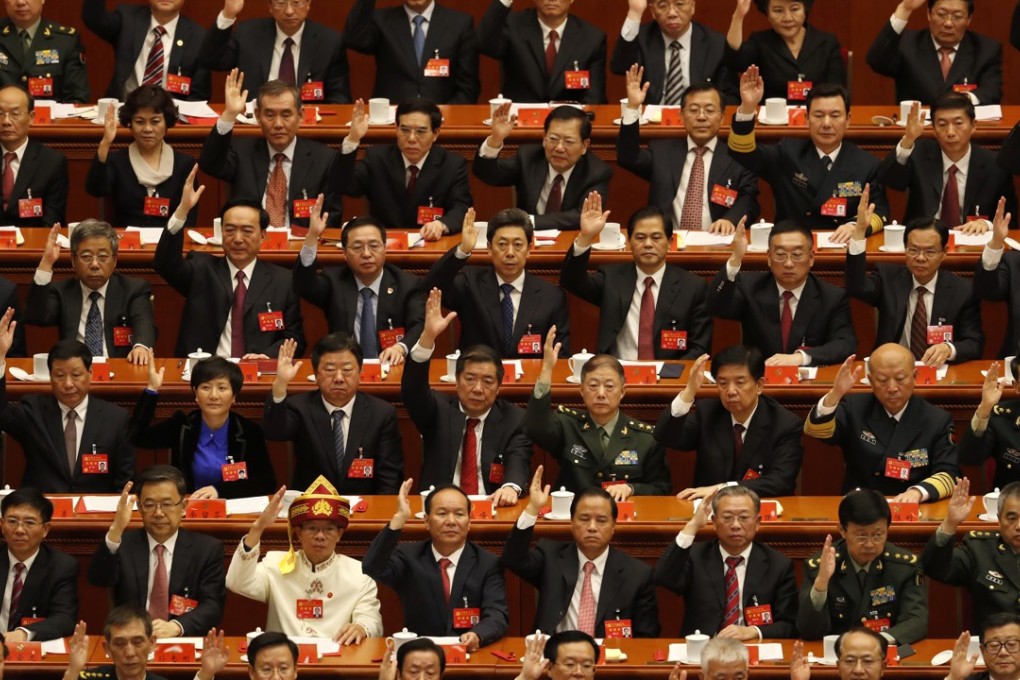Analysis | Why every vote counts in China’s biggest foregone conclusion
There is no doubt about the endgame in the ballot to remove constitutional term limits on the presidency but that doesn’t mean it won’t be worth watching

When the roughly 3,000 Chinese lawmakers line up to cast their votes on controversial changes to the constitution on Sunday, some may dismiss it as nothing but a ceremonial show.
Given the Communist Party’s iron grip on the National People’s Congress and the two-thirds majority needed for passage of the changes, endorsement is almost a certainty.
Still, President Xi Jinping is leaving nothing to chance.
A flurry of closed-door meetings and public displays of support over the last few days signal that the vote is much more than a change to the country’s founding document – it’s a ballot on Xi’s absolute authority.
And it’s for just that reason, analysts say, that it will be worth watching to see just what the final number in favour will be.
Much of the lobbying for the amendments, which include plans to scrap the two-term limit on the presidency, has taken place in camera but there have been several choreographed reminders for the public of the endgame.